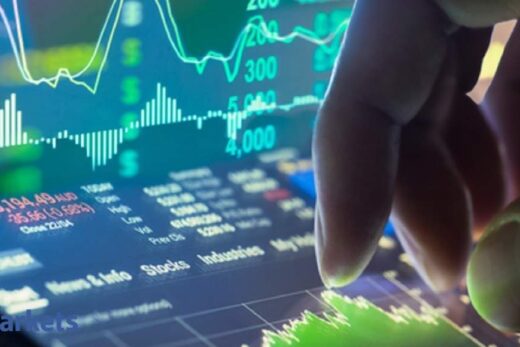Crude is above $65 and is refusing to come down; global bond yields have moved from 1% to 1.7% and in India also inflation and bond yields are threatening to go higher. If a scenario like this was constructed in January or February-end and people asked to predict the market level, they would have predicted 12,000 and 13,000 levels. Are you surprised with the market’s ability to hold on?
I am not too sure that the market would be at 12,000 if the current bad news was seen in February itself. Global and domestic markets have been anticipating this to some extent in the sense that bond yields have been rising for the last two-three months.
In India also, bond yields have actually gone up in the last two months. So it is not a big surprise that bond yields are going up, given the very low levels they were at and the fact that you are starting to see economic recovery both globally and domestically. There’s nothing really negative about that in that sense. People are factoring in recovery in the economy and earnings at the same time.
As of now, it seems some sort of fight is going on between bond yields on the one side and economic recovery and earnings growth on the other side. It is reasonably balanced at this point in time. Honestly, I am not very surprised at how this market is behaving. We will see how it pans out over the next few weeks and months in terms of the interplay between inflation and bond yields’ expectations on one hand and economic recovery and earnings growth that we will see going forward. Let us see how this whole thing evolves going forward.
What could be the next trigger for the market?
The next one month will be fairly critical in the sense that we will have more visibility of what is happening on the Covid front. A race is on between the increase in Covid cases in Maharashtra and the vaccination rollout that is also taking place at the same time. Let us see how this whole situation evolves. If for any reason, the Covid situation gets out of hand and there is some pullback in the market, on the other side, some more earnings numbers will come out as the fourth quarter results start coming out. That will give us more confidence about what kind of numbers we should expect for FY22 and beyond.
This will also give us some more visibility vis-a-vis where bond yields are headed. As of now, we will have to wait and see what is happening to the whole Covid situation. This is a race between the number of cases that are going up and vaccination rollout and on other side bond yields that could move up over the next few months from current levels.
We would also see earnings roll over to next year. So I would not be too perturbed as of now as everything looks reasonably balanced. Over the next one month, we will get more evidence which way the market should go.
How exactly do you see the banking space moving?
Corporate banks are largely okay. You will start seeing some yield growth going along. It will still take time. Companies are starting to talk about investing. The government has done a fair bit of good things over the past year, year-and-a-half and it will eventually result in the investment cycle starting to pick up. Corporate loans were fairly muted in the last several years. Hopefully, these will start picking up. The real issue would be what is happening in the MFI space as also in the personal secured loans.
If the Covid situation goes out of hand, it would start concerns around the asset quality in both MFI and personal secured loan books and parts of the MSME book are starting to come back. This could act as some sort of a headwind for the banking sector, especially as the banks will have more exposure to personal secured loans, MFI loans, MSME loans and so on. Whatever bad had to happen, has largely happened. Most of the bad loans have already been recognised and sufficient provisions have been created. Let us see how the situation plays out on the MSME and retail side.
Until now, we were quite okay given that the whole Covid situation is most likely to be under control. Economic growth is coming back in a big way and banks seem to have made sufficient provisions. As the second wave of Covid cases rise, we will have to wait and see how the situation plays out but the usual suspects which are MSME, MFI and secured loans would be the more riskier loans to focus on. Accordingly, banks which have exposure in these segments would have to be watched if the situation were to deteriorate from current levels.
Are you looking at the big picture focus when it comes to cyclicals, financials and otherwise?
If you are looking at the next one or two months, things are fairly uncertain given that we do not know how this Covid situation is going to play out. Hopefully, it would not be as bad as the situation in August and September and we would manage to get away with a modest increase and low mortality rate. The vaccination rollout needs to happen and as it picks up pace, we will be okay over the next one or two months and that too essentially in the economically sensitive sectors which are banks, mining, real estate and so on.
But over the next two months if the situation were to deteriorate significantly versus market expectations, then it is pretty clear that the economically sensitive sectors are going to suffer significantly. In that situation, the usual defensives like consumer staples, IT and pharma are the ones which are going to hold up or maybe even go up to some extent. It is clearly an uncertain situation as of now and in the next two months, we will have more clarity.
I do not think one should be taking a very bold call now. Keep the portfolio neutral to the best extent you can and then take a call in terms of how the situation plays out. If you are willing to overlook the near term headwinds from the Covid situation, then you use that as a buying opportunity in some of the economically sensitive sectors like banking, which have come down on concerns of higher credit costs.
Start looking at one year forward and use the opportunity to buy some of the names which will gradually come back over the next nine, 12 months as and when vaccination rollout picks up in a big way. Hopefully things will be under control once and for all as far as Covid is concerned over the next 12 months or so.
What according to you has been the most resilient sector outside of IT?
Most large cap companies and the quality midcap companies are doing quite fine. Forget about the stock-wise performance which was pretty much in line with the market’s initial concerns from March to June-July. Then the market started factoring in gradual recovery of the economy and then a bit of recovery from November. That is how the market has played out. Keeping that aside, the competitive positioning of the large cap companies clearly seems to have improved because of Covid. Smaller companies or the companies in the unorganised sector faced a lot more challenges. Plus, the smarter companies captured some of the trends that we are seeing in the post Covid world which is essentially digitisation etc. These companies will stand to benefit.
So broadly speaking, I am quite happy to have a basket of good quality large cap and midcap stocks and hold them for a longer term.
It is extraordinary the way many of them have cut costs significantly. We will have to wait and see how much they will be able to retain and many of them have been able to do the digital transformation a lot faster than what we had thought was possible earlier. We were thinking it would take 3-5 years for many companies to roll out the next level of digital strategy. That has got compressed to 1-3 years now in most cases. Even formalisation of the economy is happening a lot faster now. The usual suspects with good business models and decent business moats are the ones who stand to benefit in this environment.
Are you deriving comfort from some of the niche sectors like fertilisers, agriculture or even speciality chemicals which have emerged as a very hot theme of late?
I do not know about fertilisers. We do not really cover any of the names over there but specialty chemicals has been an exciting sector over the last five years. Companies which were fairly small five, six years back have become large cap companies with millions of dollars of market capitalisation. Growth seems to be fairly strong for a fairly long period for many of the companies.
Given the fact that essentially they are supplying intermediates or finished products either for the global agrochemical companies or global pharmaceutical companies and some new companies have managed to do reverse engineering and are producing chemicals at far lower costs. I suppose that process can continue for the next five, 10 years quite easily.



